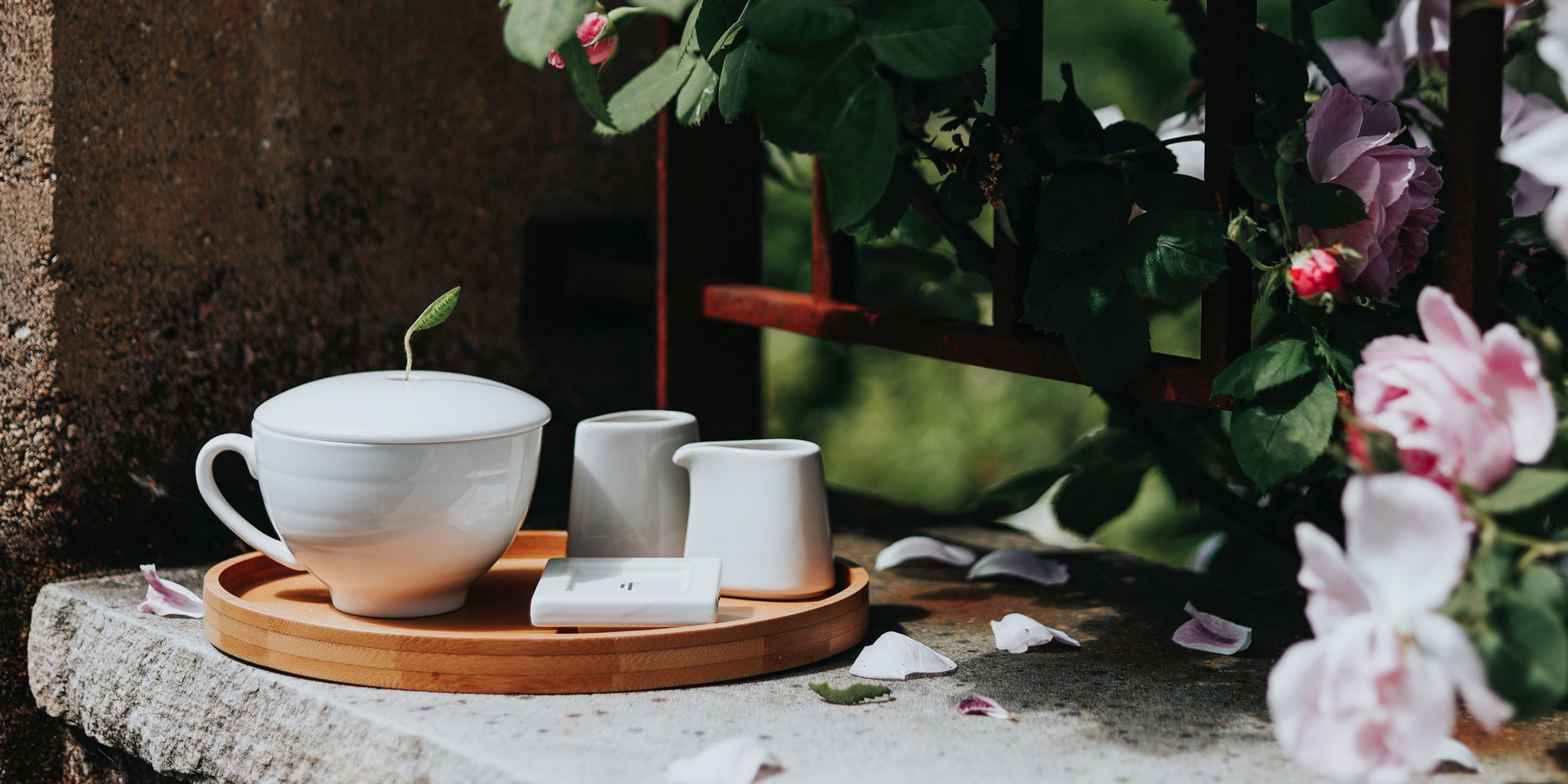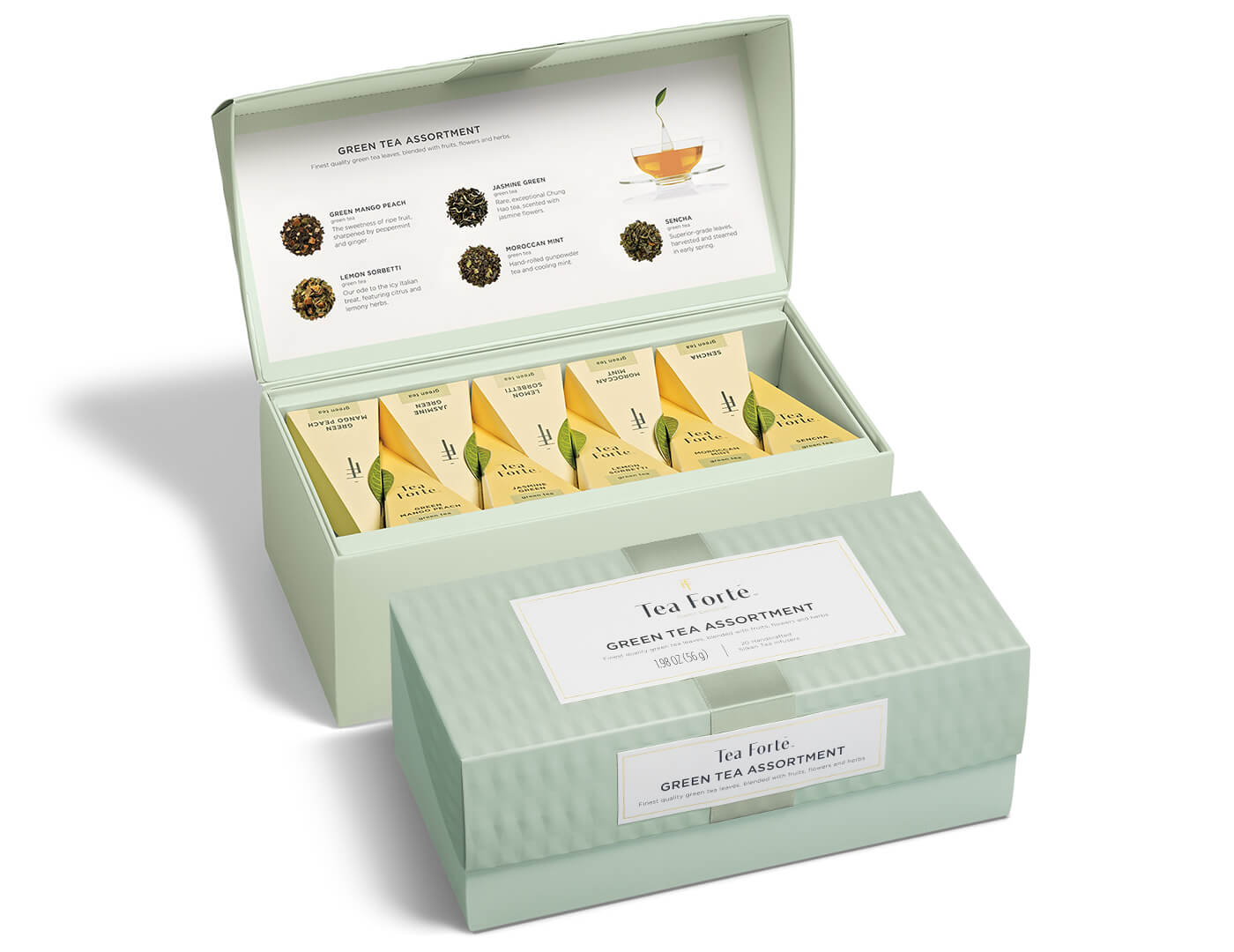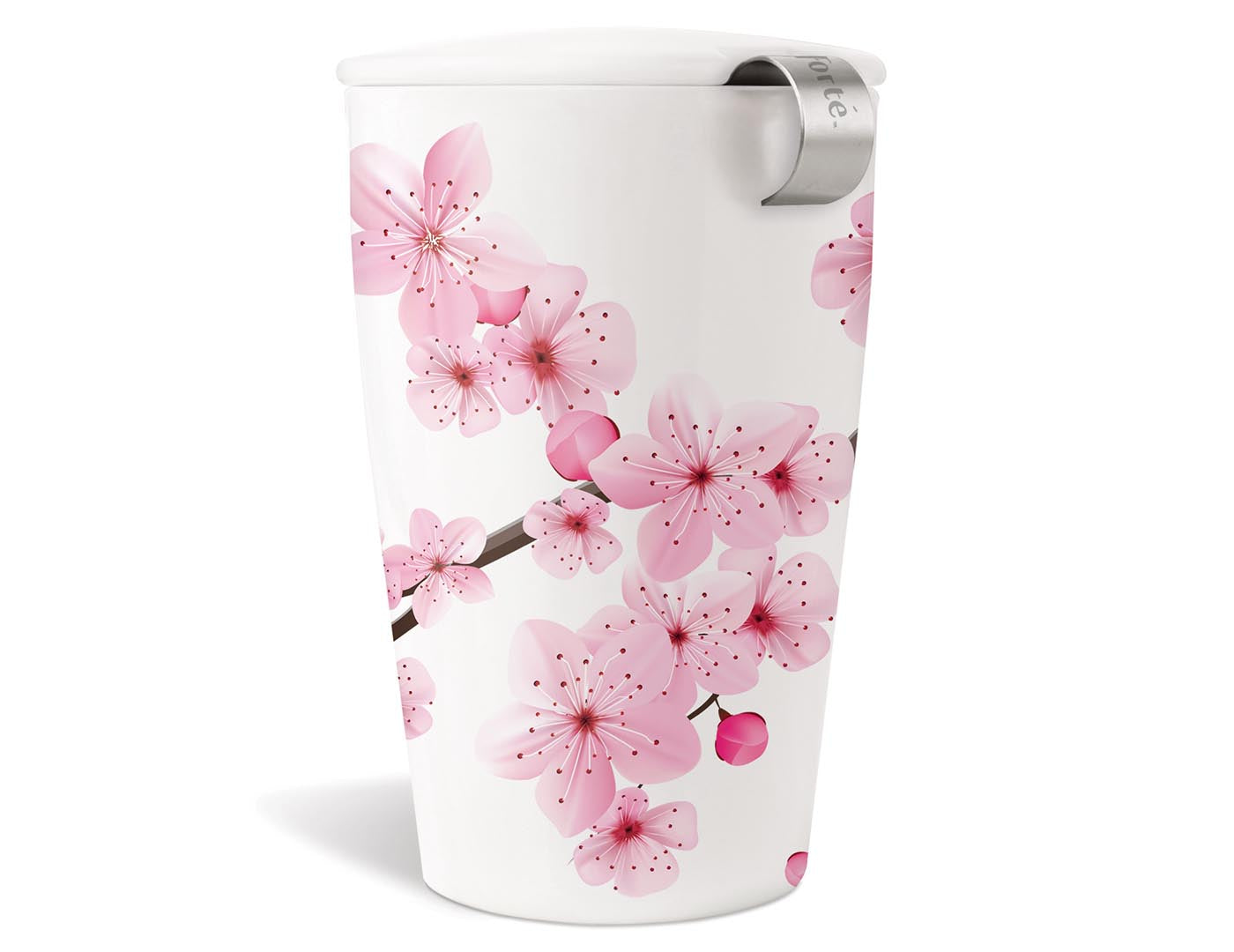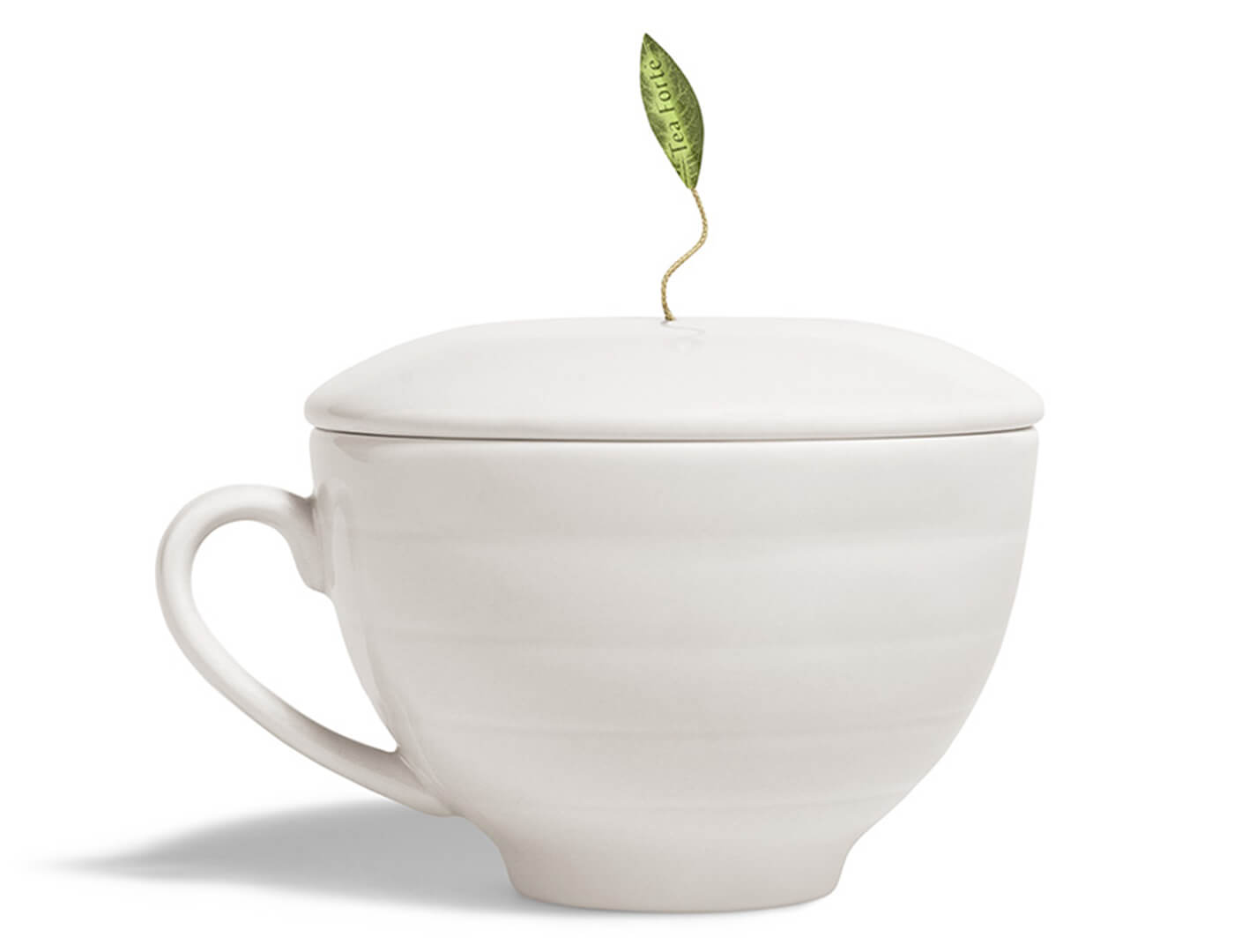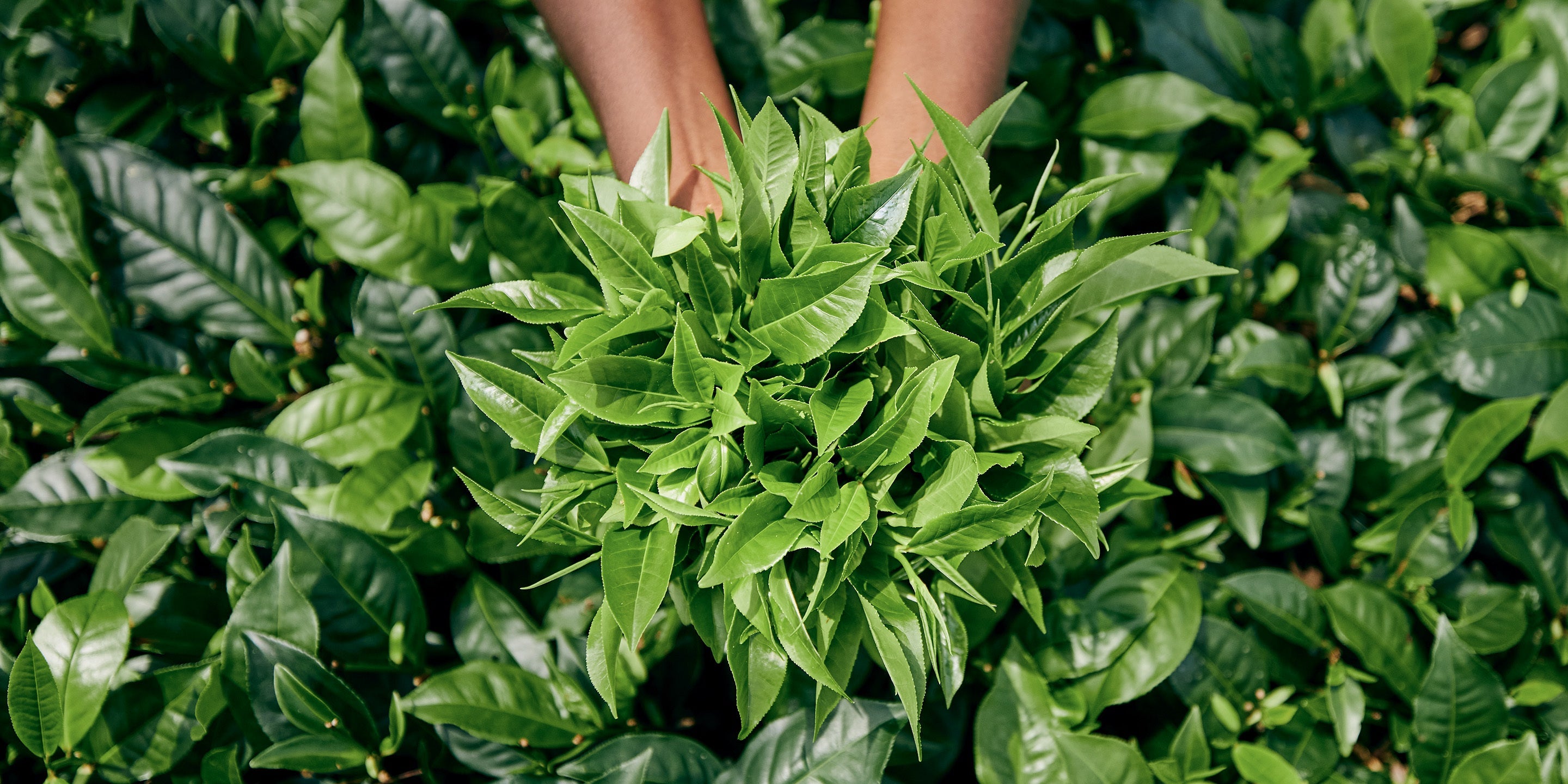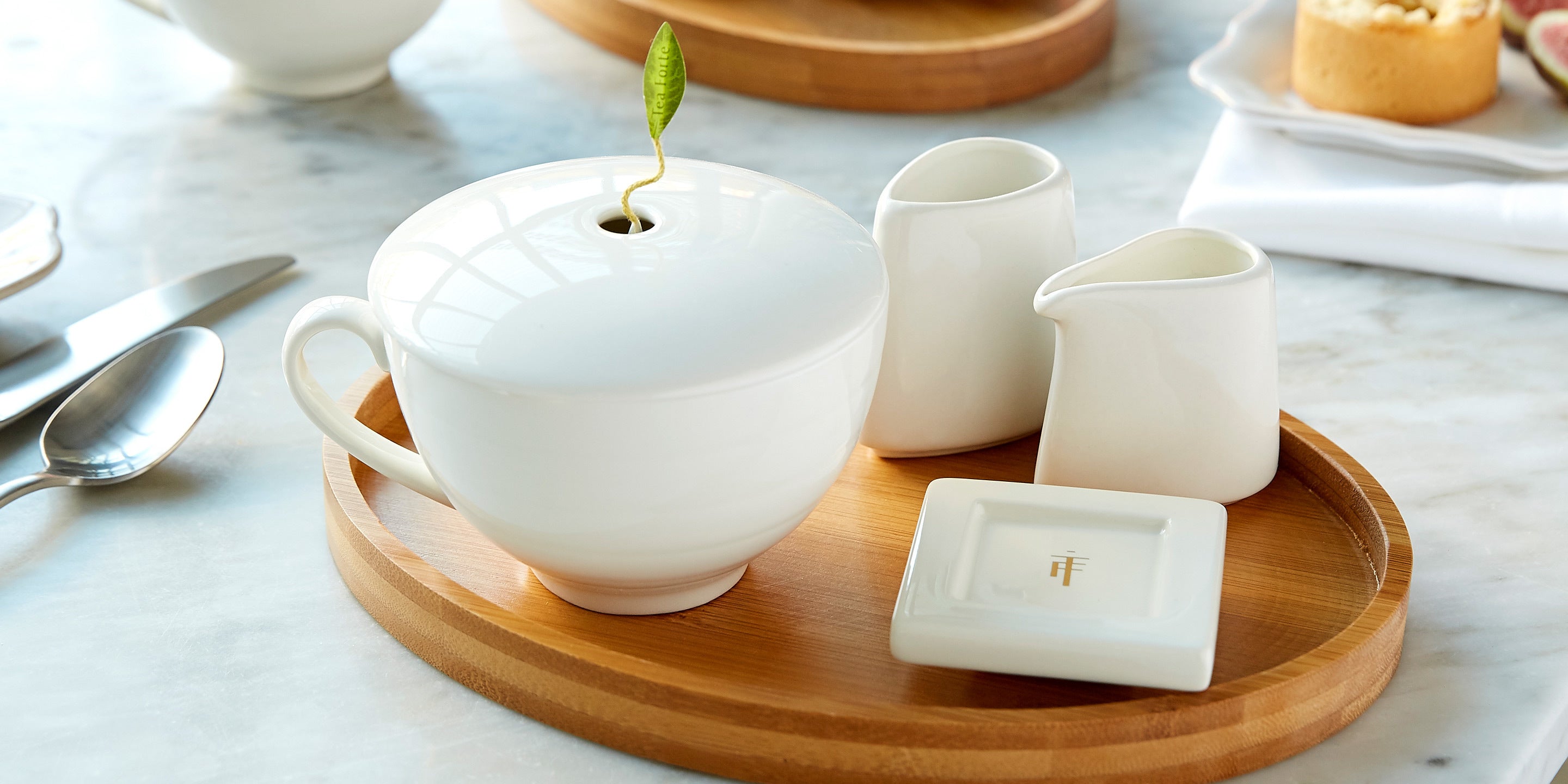For millions of people, each morning begins with a simple ritual: for some, it’s coffee, and for others, it’s tea. Many enjoy both throughout the day, while others remain firmly in favor of one beverage over the other. Curious to compare these two beloved beverages to see which one offers greater health benefits? Setting aside our obvious bias, we delved through stacks of research to see which cup wins all.
THE CAFFEINE QUESTION
To assume coffee contains more caffeine than tea might seem obvious, but it’s not necessarily true. To get to the heart of the matter, it’s important to note that coffee and espresso are two different things, and tea comes in five general forms: black, green, white, oolong, and herbal tisane. So, in essence, it’s not a question of two beverages; it’s a question of seven.
Because each type of tea requires a slightly different brewing temperature and steep time, caffeine content tends to differ across the spectrum, with higher water temperatures and longer steeps bringing out higher levels of the natural stimulant. Black and oolong tea blends require the longest steep time and the hottest water, averaging around 50mg of caffeine per 8-ounce serving. Brewed green tea tends to contain 30 to 50mg of caffeine, and white tea around 20mg. To complicate matters, matcha is another form of green tea, made from whole leaves ground into a nutrient-packed powder, offering 70mg of caffeine per teaspoon with no need for steeping whatsoever.
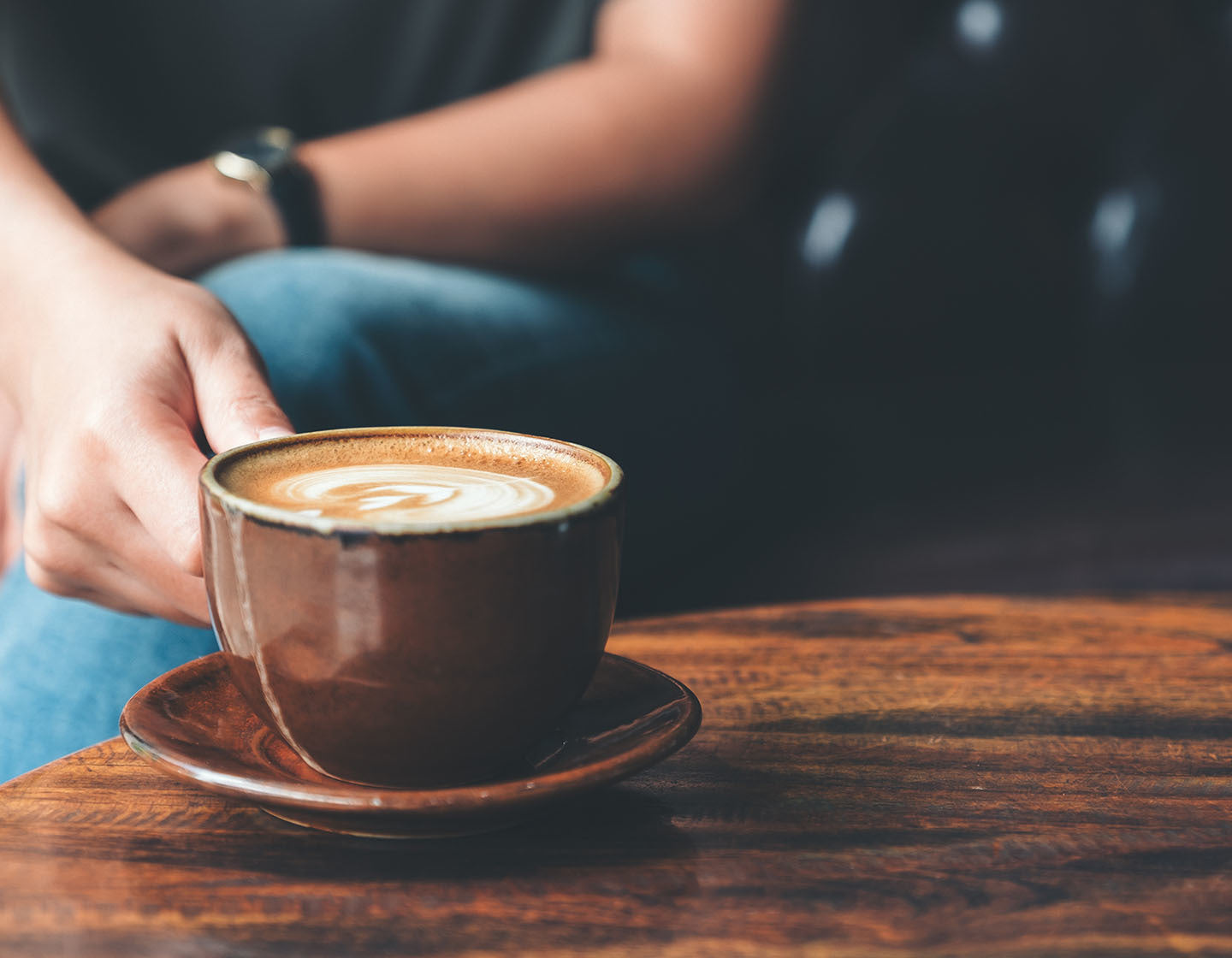
Some start their morning with coffee, or in the case of the mochaccino above, a hit of chocolate in their cappuccino. Perfect for the chocoholic who likes a foamy mocha.
The amount of caffeine in a cup of coffee, on the other hand, can vary widely depending on the beans used, the length of brewing time, and the size of the serving. Few people drink just one small 8-ounce serving of coffee: in fact, the smallest size sold by the most popular coffee shop chain in the US is called a tall, and it contains 12 ounces. The signature medium-roast cup of coffee there contains 235 mg of caffeine -- more than half the recommended daily allowance of 400 mg -- and a single shot of espresso contains 75 mg.
So, for those who want a wallop of instant energy, strongly-brewed coffee is the clear winner. For those who want a moderate amount of caffeine in just two or three shots, espresso or matcha may be the right choice. But for those who prefer a more gradual boost that can be enjoyed time and again throughout the day, tea comes out on top.
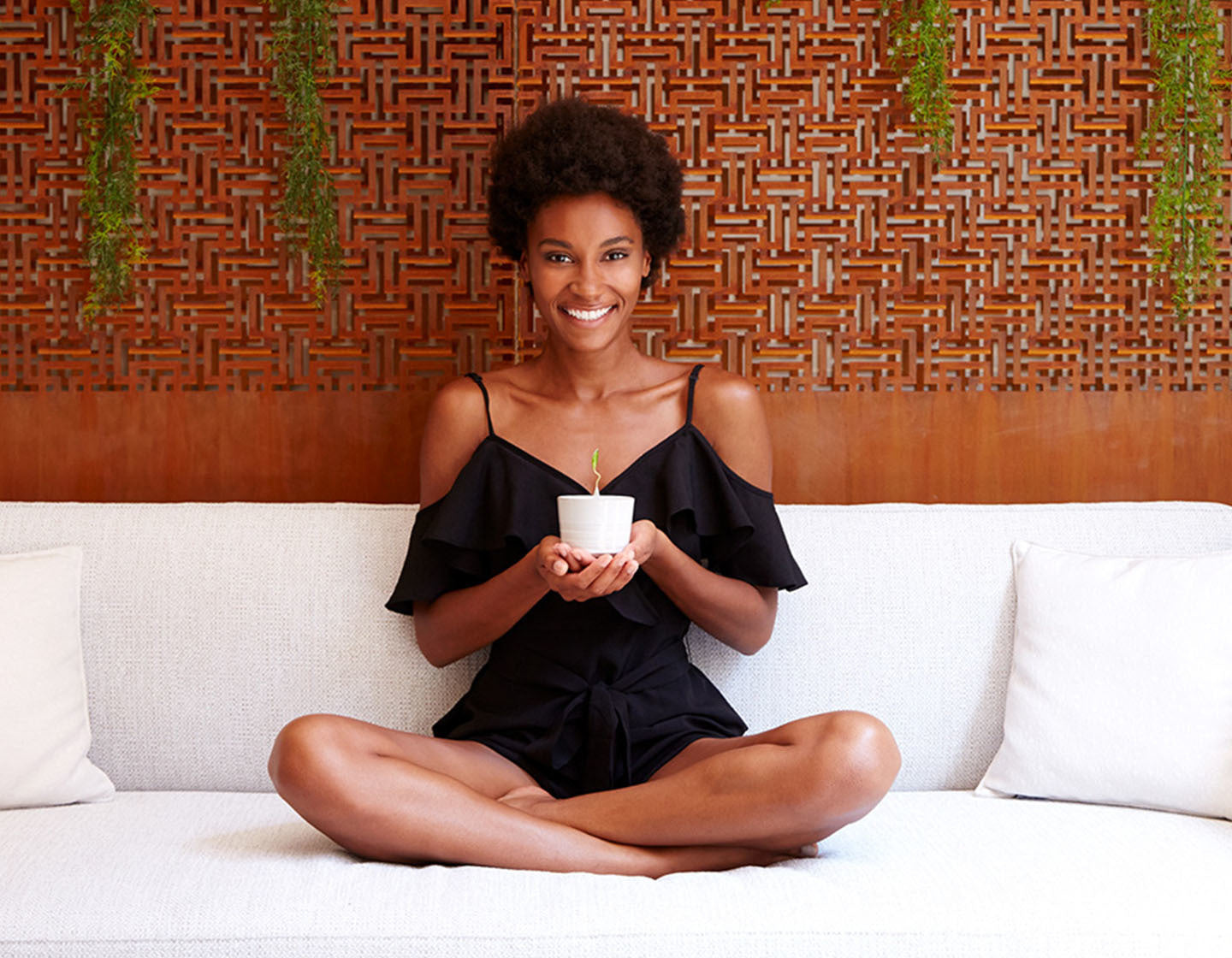
As an alternative to a coffee latte, learn how to make the popular tea latte, the London Fog.
GREEN TEA VS. COFFEE
While plenty of people swear by a heaping helping of caffeine to get going in the morning, it doesn’t come without a downside. For many people, the jolt of a caffeine buzz may be accompanied by a jittery sensation, either mental, physical, or both. Overindulgence in caffeine can lead to mild trembling in the short-term and increased heartbeat, anxiety, and even cardiac arrhythmia over time. But for those who wish to enjoy an abundance of caffeine without the side effects, matcha contains an amino acid that curbs the negative side effects of caffeine.
Called L-Theanine, it takes the edge off of caffeine’s energetic boost, delivering a calm sense of focus and clarity. Used in everything from simple shots made with hot water to creamy green tea lattes, frappes, and smoothies, this power-packed powder delivers a wealth of healthy antioxidants greater than any other form of tea... and more than coffee and espresso as well.
ANTIOXIDANTS IN TEA VS. COFFEE
As for antioxidants in general, both coffee and tea provide them in spades. But as with caffeine, many variables can alter the antioxidant content of either cup. In the tea family, black, oolong, and green teas are known to have higher levels of antioxidants than white and herbal teas due to the way the leaves are processed. Higher still are the antioxidant levels in matcha, since the entire leaves are consumed as a powder infused in water or milk rather than steeped and thrown away.
When it comes to coffee and espresso, dark roasts made from beans grown at high altitudes (such as Turkish and Greek coffee) tend to offer more antioxidant benefits than lighter roasts grown at lower altitudes. So, there’s no clear answer here: as it happens, antioxidants tend to vary by the bean or leaf.
HEALTH BENEFITS OF COFFEE VS. TEA
With antioxidants come health benefits, of course, and nearly every cup of tea or coffee offers its own array of perks. According to the Telegraph, coffee is beneficial to digestive health, while tea is tops for improving bone health, lowering cholesterol, maintaining or losing weight, reducing short-term anxiety and promoting heart health. In fact, a study published by the American Heart Association journal Circulation found that people with coronary artery issues experienced improved circulation after drinking black tea for only four weeks.
And when it comes to an evening beverage, nothing rivals the soothing sense of calm that accompanies a cup of herbal tea containing sleep-friendly flowers and herbs like chamomile and lavender. Better rest leads to greater wellness thanks to the restorative powers of deep sleep. Reducing stress over time results in a healthier heart and immune system, so even if you begin each day with a cup of coffee, consider signing off each night with an herbal tisane to ensure a good night’s sleep and a fresh start in the morning.
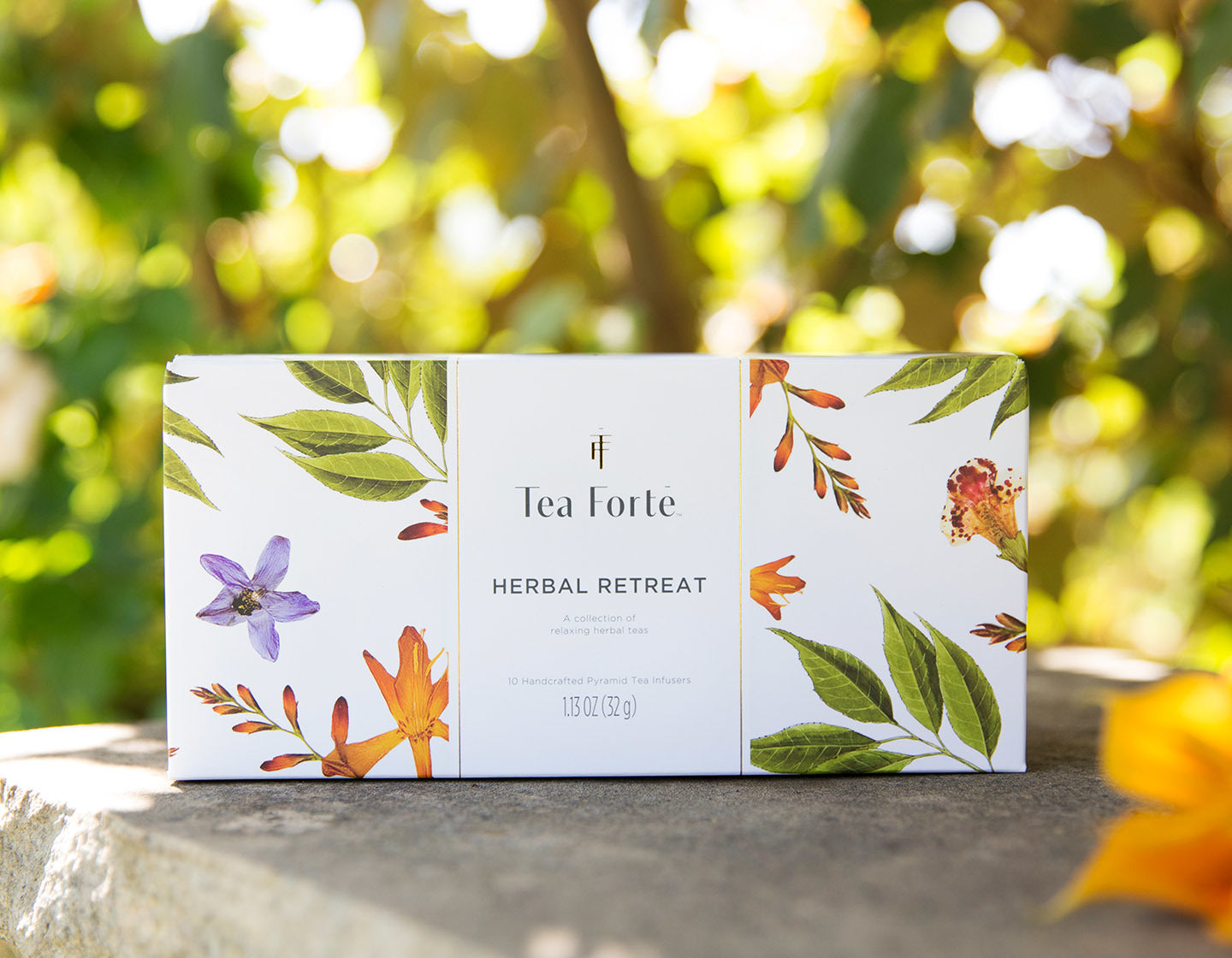
Herbal Retreat Collection: Retreat to a place where restorative calm and peace are found with naturally caffeine-free herbal infusions to relax the mind and soothe the spirit.
No matter your preference, Tea Forte has something to suit you. Explore everything from our delicate herbal tisanes to our deep, rich black teas, perfect for coffee and tea lovers alike.
Top image by @DemiWardPhoto
Presentation Box Herbal Retreat
Save 15% at checkout
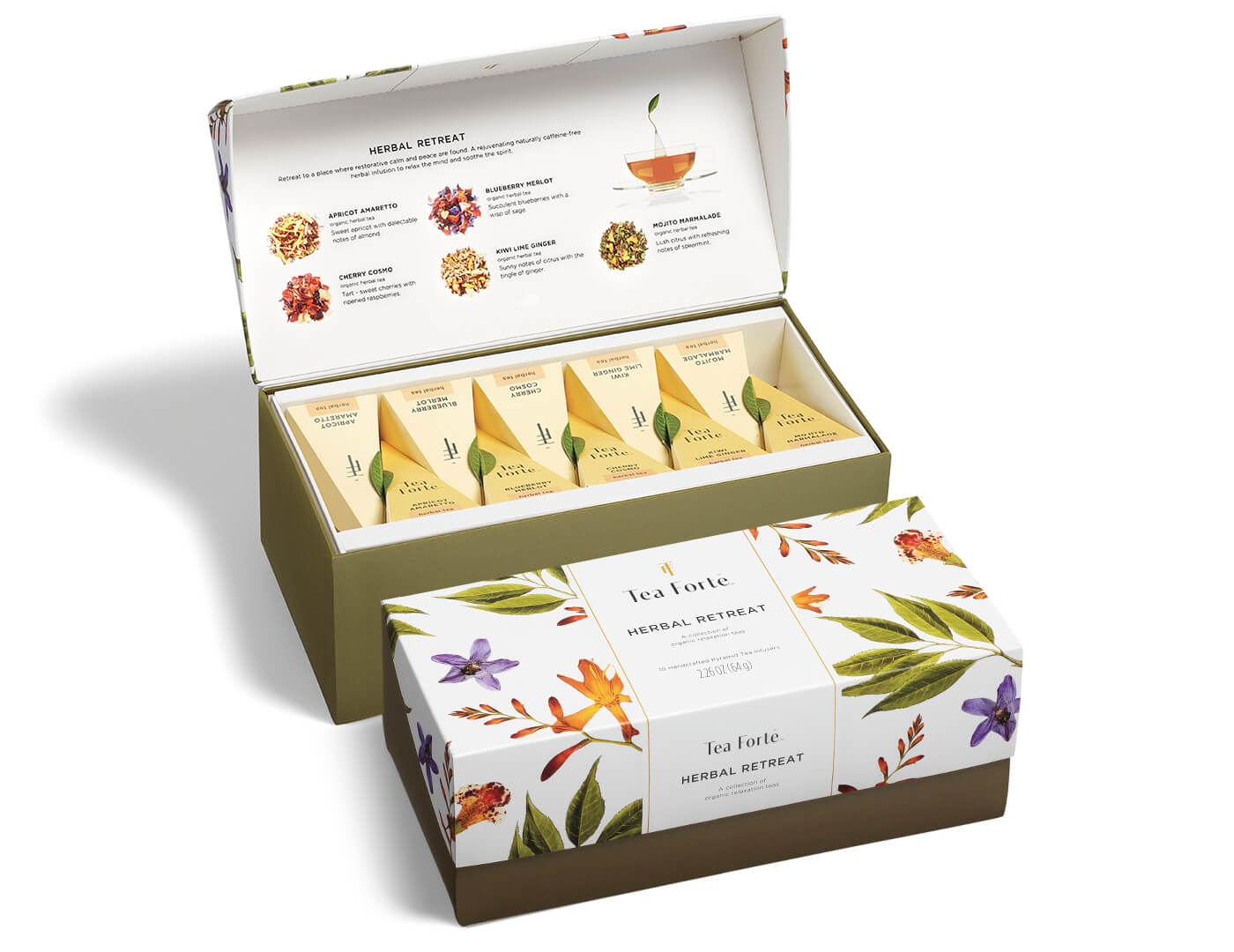
Single Steeps® Tea Chest Herbal Tea Assortment
Save 15% at checkout

